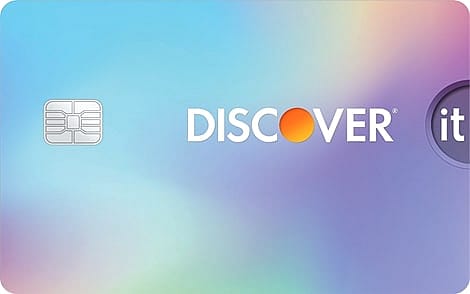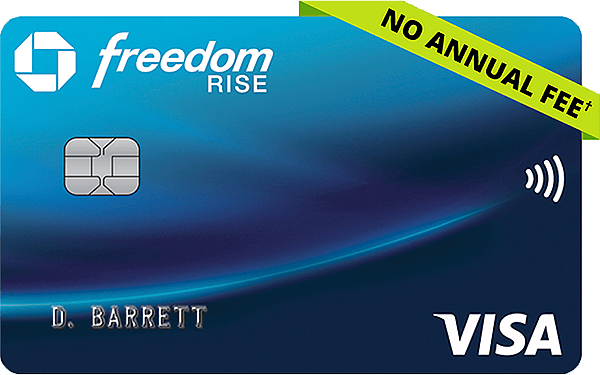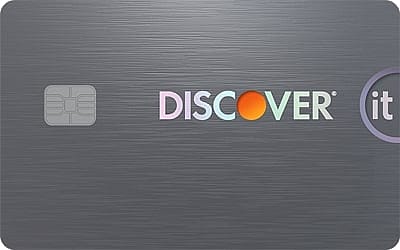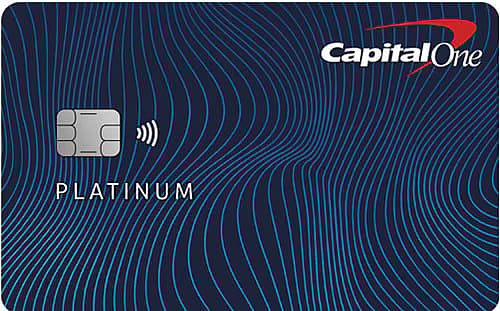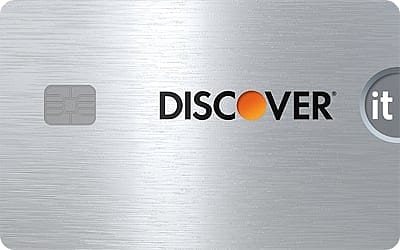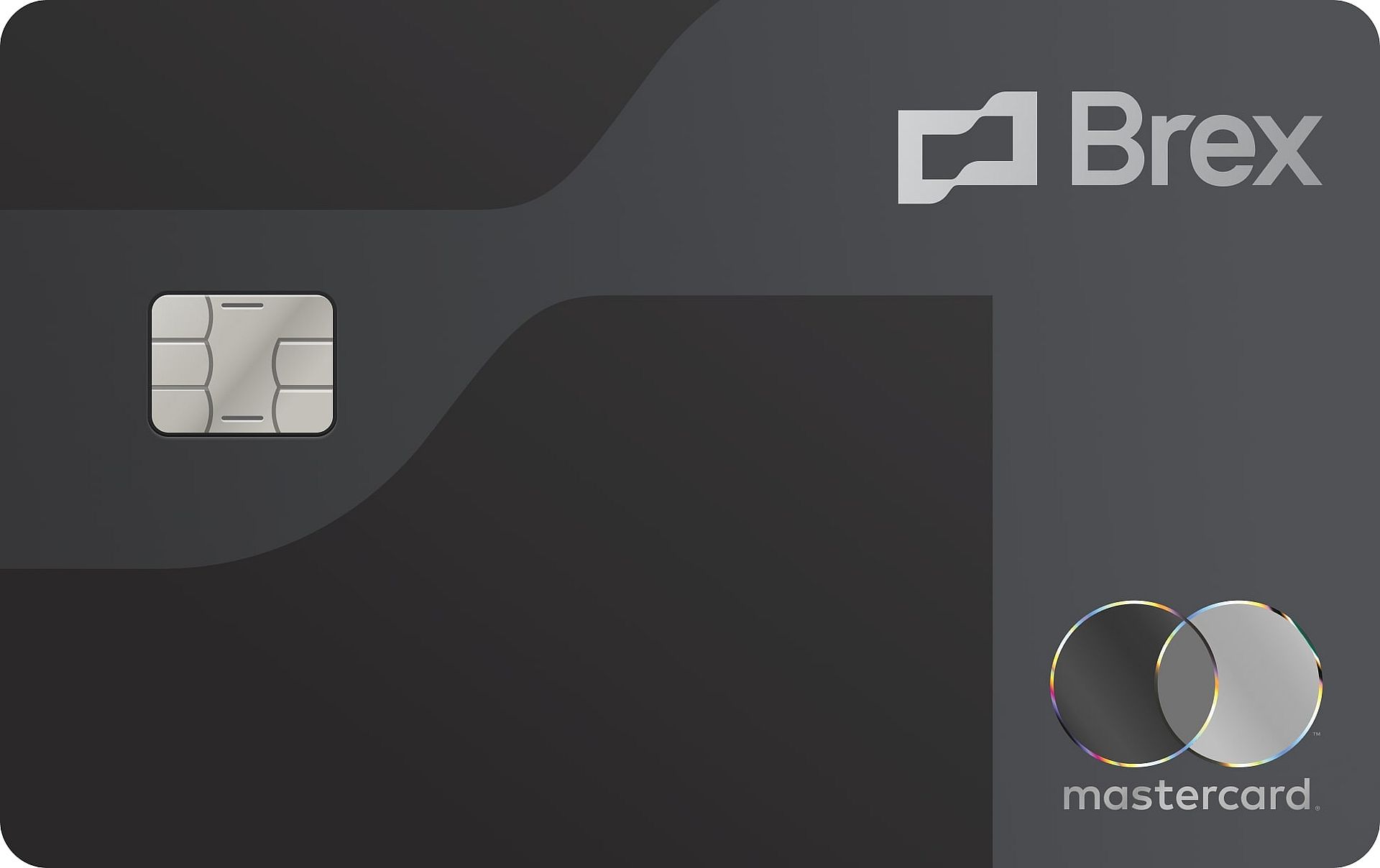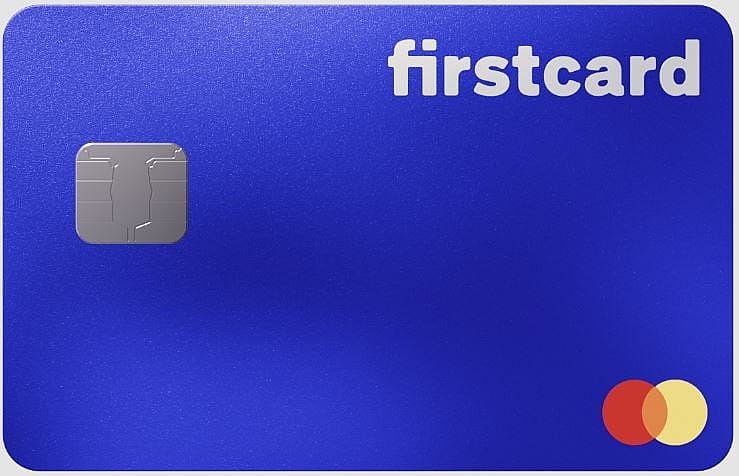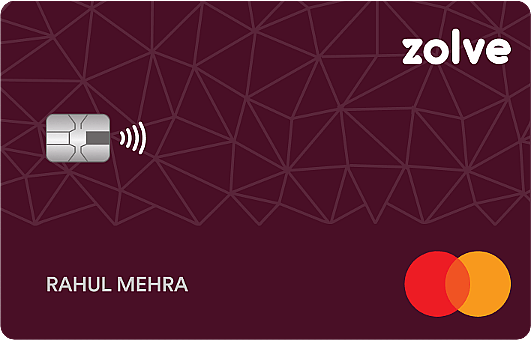Best Starter Credit Cards for No Credit of March 2026
Many or all of the products on this page are from partners who compensate us when you click to or take an action on their website, but this does not influence our evaluations or ratings. Our opinions are our own.
Many or all of the products on this page are from partners who compensate us when you click to or take an action on their website, but this does not influence our evaluations or ratings. Our opinions are our own.
The best starter credit cards are easy to get, have no annual fee and report your payments to the three major credit bureaus. The right card for you depends on your situation. Options include secured credit cards — which require refundable upfront deposits — student credit cards and alternative credit cards from smaller issuers that evaluate applicants' creditworthiness on factors other than FICO credit scores.
Our pick for: Student cards: Bonus category cash-back rewards
Apply Nowon Discover's website,on Discover's website, or call 800-347-0264Annual fee$0Minimum depositN/ARecommended credit scoreRegular APR16.49%-25.49% Variable APRBalance transfer intro APR10.99% intro APR on balance transfers for 6 monthsRewards rate1%-5%CashbackIntro offerCashback Match™Rewards breakdown
5%Cash back on everyday purchases at different places you shop each quarter like grocery stores, restaurants, gas stations, and more, up to the quarterly maximum when you activate.1%Cash back on all other purchases.Card details
- INTRO OFFER: Unlimited Cashback Match for all new cardmembers – only from Discover. Discover will automatically match all the cash back you’ve earned at the end of your first year! There’s no minimum spending or maximum rewards. You could turn $50 cash back into $100. Or turn $100 cash back into $200.
- Earn 5% cash back on everyday purchases at different places you shop each quarter like grocery stores, restaurants, gas stations, and more, up to the quarterly maximum when you activate. Plus, earn unlimited 1% cash back on all other purchases.
- Redeem cash back for any amount
- No credit score required to apply.
- No annual fee and build credit with responsible use.
- 0% intro APR on purchases for 6 months, then the standard variable purchase APR of 16.49% - 25.49% applies.
- Terms and conditions apply.
- View Rates & Fees
NerdWallet's take
The Discover it® Student Cash Back offers a generous rewards rate on quarterly bonus categories upon activation. Discover says there is no FICO history requirement to qualify.
Read full reviewProsThis card offers 5% cash back in rotating categories on up to $1,500 in spending per quarter. Activation is required. All other spending earns 1% cash back. It has a $0 annual fee and no late fee on the first late payment. It also has a potentially rewarding welcome bonus: INTRO OFFER: Unlimited Cashback Match for all new cardmembers – only from Discover. Discover will automatically match all the cash back you’ve earned at the end of your first year! There’s no minimum spending or maximum rewards. You could turn $50 cash back into $100. Or turn $100 cash back into $200.
ConsBonus categories may not match your spending at all times and you'll have to activate them every three months to get the higher rewards rate. It can be a lot to manage when you’re just starting out with credit. Discover also isn’t as widely accepted abroad as Visa or Mastercard.
Our pick for: No-deposit starter card: Solid rewards on everything
Apply Nowon Chase's websiteon Chase's websiteAnnual fee$0Minimum depositN/ARecommended credit scoreRegular APR25.24%Rewards rate1.5%CashbackIntro offer$25Rewards breakdown
1.5%Cash back on all purchases.Card details
- Increase your approval chances - Having a Chase checking or savings account with a balance of at least $250 will increase your chances of getting approved for Chase Freedom Rise®
- Earn Cash Back - With Chase Freedom Rise®, you can establish credit while earning 1.5% cash back on all purchases. Cash Back rewards do not expire as long as your account is open and there is no minimum to redeem for cash back.
- Earn a $25 statement credit after signing up for automatic payments within the first three months of opening your account. With automatic payments, just pick a date and dollar amount to make sure your Credit Card gets paid on time.
- Credit Limit Increase - As a Freedom Rise® cardmember, you'll be evaluated for a credit line increase in as soon as 6 months. Your credit line is the maximum amount of money you can spend on your Freedom Rise® Card
- Free Credit Score - Track your credit score and learn how to build it with Chase Credit Journey.
- No Annual Fee - You won't have to pay an annual fee for all the great features that come with your Freedom Rise® Card.
- Member FDIC
- View Rates & Fees
NerdWallet's take
The Chase Freedom Rise® has everything you want to see in a credit card meant for beginners: a low barrier to approval, a $0 annual fee, solid rewards on everything you buy, and a potential upgrade path to any number of other excellent credit cards in the Chase portfolio.
Read full reviewProsThere's no annual fee to worry about, and since it's an unsecured credit card, there's no upfront deposit required either. You don't even need a credit history to qualify. On top of that, the card earns a flat 1.5% cash back on all purchases, which is competitive with many cards that have more stringent credit requirements. Plus, you may eventually be able to graduate to an even better Chase credit card.
ConsWhile it's a great choice for those with no credit, you won't be able to get this card if what you actually have is bad credit (FICO scores of 629 or lower). Chase also notes that your odds of approval will be higher if you have, or are willing to open, a Chase checking or savings account with at least $250 in it. So it may require jumping through a hoop or two first.
2026 Best credit card for building credit
Apply Nowon Discover's website,on Discover's website, or call 800-347-0264Annual fee$0Minimum deposit$200Recommended credit scoreRegular APR26.49% Variable APRBalance transfer intro APR10.99% intro APR on balance transfers for 6 monthsRewards rate1%-2%CashbackIntro offerCashback Match™Rewards breakdown
2%Cash back at Gas stations on up to $1,000 in combined purchases each quarter, automatically.2%Cash back at Restaurants on up to $1,000 in combined purchases each quarter, automatically.1%Cash back on all other purchases.Card details
- No credit score required to apply. No Annual Fee.
- Your secured credit card requires a refundable security deposit, and your credit line will equal your deposit amount, starting at $200. Bank information must be provided when submitting your deposit.
- Automatic reviews starting at 7 months to see if we can transition you to an unsecured line of credit and return your deposit.
- Earn 2% cash back at Gas Stations and Restaurants on up to $1,000 in combined purchases each quarter, automatically. You'll still earn unlimited 1% cash back on all other purchases.
- INTRO OFFER: Unlimited Cashback Match for all new cardmembers—only from Discover. Discover will automatically match all the cash back you’ve earned at the end of your first year! There’s no minimum spending or maximum rewards.
- Get an alert if we find your Social Security number on the dark web. Activate for free.
- Terms and conditions apply.
- View Rates & Fees
NerdWallet's take
With the Discover it® Secured Credit Card you have the chance to get automatically upgraded to an unsecured card and get your deposit back without having to close your account. It also earns rewards, nearly unheard-of for a secured card. Like almost all secured cards, you can qualify with no credit.
Read full reviewProsYou earn 2% cash-back on up to $1,000 in combined spending per quarter at restaurants and gas stations, and 1% on all other spending. INTRO OFFER: Unlimited Cashback Match for all new cardmembers—only from Discover. Discover will automatically match all the cash back you’ve earned at the end of your first year! There’s no minimum spending or maximum rewards. The annual fee is $0. And after seven months, Discover automatically begins evaluating your account to see if you qualify for getting your security deposit refunded.
ConsFor some, the $200 minimum deposit might be hard to pull together — especially since you need to have the funds ready upfront when you apply.
Our pick for: Secured cards: Low deposit
Apply Nowon Capital One's websiteon Capital One's websiteAnnual fee$0Minimum deposit$49, $99 or $200Recommended credit scoreRegular APR28.99% Variable APRRewards rateN/AIntro offerN/ACard details
- No annual or hidden fees. See if you're approved in seconds
- Building your credit? Using the Capital One Platinum Secured card responsibly could help
- Put down a refundable security deposit starting at $49 to get at least a $200 initial credit line
- You could earn back your security deposit as a statement credit when you use your card responsibly, like making payments on time
- Be automatically considered for a higher credit line in as little as 6 months with no additional deposit needed
- Enjoy peace of mind with $0 Fraud Liability so that you won't be responsible for unauthorized charges
- Monitor your credit score with CreditWise from Capital One. It's free for everyone
- Get access to your account 24 hours a day, 7 days a week with online banking to access your account from your desktop or smartphone, with Capital One's mobile app
- Top rated mobile app
- View Rates & Fees
NerdWallet's take
With most secured credit cards, your deposit equals your credit limit. That’s not necessarily the case with the Capital One Platinum Secured Credit Card. The deposit may be $49, $99 or $200 for a $200 credit line, depending on what you qualify for. Plus, you can automatically be considered for a higher credit limit, without having to deposit more money, in as little as six months. The deposit can also be paid in installments.
Read full reviewProsThe card's deposit requirements — and the possibility of qualifying for a higher credit line — makes this card a valuable choice. The annual fee is $0. No credit history is required, as is generally the case with secured cards.
ConsYou won’t qualify for this card if your monthly income doesn't exceed your rent or mortgage payment by at least $425.
2026 Best credit card for college students
Apply Nowon Discover's website,on Discover's website, or call 800-347-0264Annual fee$0Minimum depositN/ARecommended credit scoreRegular APR16.49%-25.49% Variable APRBalance transfer intro APR10.99% intro APR on balance transfers for 6 monthsRewards rate1%-2%CashbackIntro offerCashback Match™Rewards breakdown
2%Cash back at Gas stations on up to $1,000 in combined purchases each quarter, automatically.2%Cash back at Restaurants on up to $1,000 in combined purchases each quarter, automatically.1%Cash back on all other purchases.Card details
- INTRO OFFER: Unlimited Cashback Match for all new cardmembers – only from Discover. Discover will automatically match all the cash back you’ve earned at the end of your first year! There’s no minimum spending or maximum rewards. You could turn $50 cash back into $100. Or turn $100 cash back into $200.
- Earn 2% cash back at Gas Stations and Restaurants on up to $1,000 in combined purchases each quarter, automatically. You'll still earn unlimited 1% cash back on all other purchases.
- Redeem cash back for any amount
- No credit score required to apply.
- No annual fee and build credit with responsible use.
- 0% intro APR on purchases for 6 months, then the standard variable purchase APR of 16.49% - 25.49% applies.
- Terms and conditions apply.
- View Rates & Fees
NerdWallet's take
The Discover it® Student Chrome is a standout student credit card due to its no-frills rewards structure and student-friendly features. And, according to Discover, you don't need a FICO history to qualify.
Read full reviewProsThis card features simple rewards: You earn 2% cash back at restaurants and gas stations, on up to $1,000 in combined purchases per quarter. All other purchases earn 1%. The annual fee is $0. It comes with a potentially generous welcome offer: INTRO OFFER: Unlimited Cashback Match for all new cardmembers – only from Discover. Discover will automatically match all the cash back you’ve earned at the end of your first year! There’s no minimum spending or maximum rewards. You could turn $50 cash back into $100. Or turn $100 cash back into $200.
ConsDiscover isn’t the most ideal payment method abroad, so this card isn't the best one to take on a study abroad trip. The network isn’t as widely accepted internationally by merchants as Visa or Mastercards.
Our pick for: Small-business card: Startups
Annual fee$0Minimum depositN/ARecommended credit scoreRegular APRN/ARewards rate1x-7xPointsIntro offer10,000pointsRewards breakdown
7xPoints on rideshare.4xPoints on Brex Travel.3xPoints on restaurants.2xPoints on software subscriptions.1xPoint on all other transactions.Card details
- Get 10,000 points when you spend $3,000 on a Brex Card within your first 3 months.
- No personal guarantee needed – Brex does not ask for a personal credit check or security deposit during the application.
- Credit limits 10-20x higher than traditional small business corporate cards.
- Minimum bank balance of $50,000 from professional investors may be required to qualify for Brex.
- Exclusive signup offers from the best products and tools for your business (e.g. AWS, Google Ads, WeWork, Salesforce) worth up to $150,000 in value.
- Earn points on every dollar spent with industry-leading multipliers: 7x on rideshare, 4x on Brex Travel, 3x on restaurants, 2x on software subscriptions and 1x on all other transactions.
- Earn 3x Brex Rewards points on all eligible Apple purchases through the link or your Brex dashboard.
- Miles transfer program to 7 airlines (including Singapore Airlines, Qantas, Air France, and more) and their loyalty programs, giving Brex customers access to book travel across all of the major global airline alliances - Star Alliance, Oneworld, and SkyTeam.
- 30-day charge card running on the Mastercard network. Enjoy global acceptance with no foreign transaction fees.
- Build business credit: Brex partners with Dun & Bradstreet and Experian to report your on-time payments.
- Make employee expenses seamless - automated receipt-capture and expense matching and reconciliation via text, email, and mobile app. Instantly add new users and set spending limits.
- Contactless pay with Apple Pay, Google Pay, and Samsung Pay.
- Simplify reconciliation with built-in integrations with QuickBooks, Xero, NetSuite, and more.
NerdWallet's take
The Brex Card is ideal for business owners with no credit history and plenty of cash in the bank. It's one of the very few small-business cards that doesn't require a personal guarantee, meaning you're not personally on the hook for outstanding balances if your business fails. Brex evaluates creditworthiness by looking at a company’s cash balance, spending patterns and investors.
Read full reviewProsThis $0-annual-fee card packs a lot of opportunities to earn rewards and discounts on business expenses. You'll get 1 point per $1 spent on purchases, or more points if you make the Brex Card your only company card for expenses. If you do, you'll get 7 points per dollar on rideshares, 4 points per dollar on travel booked through Brex, 3 points per dollar at restaurants and on Apple products (purchased through the Brex dashboard), and 2 points per dollar on recurring software expenses. There's also a sign-up bonus: Get 10,000 points when you spend $3,000 on a Brex Card within your first 3 months..
ConsYou need $50,000 in your bank account to qualify for this card ($100,000 if you're self-funded). And, since it’s a charge card, you’ll have to pay the full balance at every billing cycle.
Our pick for: Secured cards: International students and immigrants
Apply Nowon Firstcard's websiteon Firstcard's websiteAnnual fee$72-$144/year, depending on subscription planMinimum depositN/ARecommended credit scoreRegular APRN/ARewards rate1%-15%CashbackIntro offerN/ARewards breakdown
15%Merchant Cashback at 29,000 partner merchants.10%Random Cashback on all qualifying purchases.1%Unlimited Cashback with Firstcard Premium on all purchases on top of the two cashback offerings (Merchant Cashback and Random Cashback) all Firstcard members are currently enjoying.Card details
- Build credit faster, cheaper, and safer
- No credit checks and no credit history are required to open a credit card
- Accepts immigrants and internationals without an SSN - apply with a passport and visa.
- 0% APR. Don’t worry about overspending. What you deposit is what you can spend.
- No account minimum, no interest, and no overdraft fee
- Get up to 15% Merchant Cashback at 29,000 partner merchants
- Get up to 10% Random Cashback on all qualifying transactions
- Earn 4.00% APY with Firstcard Premium, 2.00% APY with Firstcard+, or 0.75% APY with Firstcard Standard on the money in your Firstcard
- Earn an additional 1% Unlimited Cashback with Firstcard Premium on all qualifying transactions on top of the two cashback offerings (Merchant Cashback and Random Cashback)
- Monitor your credit score right in the app
- Get an in-depth monthly credit report with Firstcard+ and Firstcard Premium
- Instant access to your virtual card once your account is approved and you add your virtual card to your phone’s digital wallet
- Your money is protected with Firstcard — automatically insured up to $250,000 by FDIC (backed by the U.S. government)
NerdWallet's take
The Firstcard® Secured Credit Builder Card has extremely low barriers to entry and also earns rewards.
Read full reviewProsThe Firstcard® Secured Credit Builder Card doesn't require a credit check, and you can potentially get it without a Social Security number. Unlike other secured credit cards, there's no minimum required deposit amount, nor are there any interest charges.
ConsThere's an annual fee: $72-$144/year, depending on subscription plan. And if you want a higher-end version of the card, you'll have to pay for that.
Our pick for: Unsecured cards: International students and immigrants
Apply Nowon Zolve's websiteon Zolve's websiteAnnual fee$0Minimum depositN/ARecommended credit scoreRegular APR19.50%-39.50% Variable APRRewards rate1%-10%CashbackIntro offer$15Rewards breakdown
1%unlimited cashback on all spends.Card details
- $15 Welcome Points after completion of tasks and milestone activities detailed in the application process.
- $100+ Overall Annual Benefits.
- 1% Unlimited Cashback on all spends.
- Up to 10% Cashback on 7k+ merchants.
- No SSN or prior credit history required.
- Build credit history from Day 1 in the US.
NerdWallet's take
The Zolve Classic Credit Card is highly accessible and affordable, and it even earns modest rewards.
Read full reviewProsThere are few obstacles to getting this card, even if you're new to the U.S. The annual fee is $0, there's no security deposit or credit history requirement, and it's possible to get it without a Social Security number.
ConsThere's currently no clear upgrade path to a better product from Zolve when you're ready. Plus, the APR can range up to nearly 40%, so you won't want to carry a balance. If you do happen to have a Social Security number, you can likely do better with other starter cards in terms of rewards and flexibility.
Compare the Best No Credit Credit Cards
| Credit card | Rating | Annual fee | Minimum deposit | Rec. credit score Rec. credit score | Learn more |
|---|---|---|---|---|---|
Apply Nowon Discover's website, on Discover's website, or call 800-347-0264 | Best for Student cards: Bonus category cash-back rewards | $0 | N/A | 630-689 (Fair) | Apply Nowon Discover's website, on Discover's website, or call 800-347-0264 |
Apply Nowon Chase's website on Chase's website | Best for No-deposit starter card: Solid rewards on everything | $0 | N/A | 690-850 (Good - Excellent) | Apply Nowon Chase's website on Chase's website |
2026 Best credit card for building credit Apply Nowon Discover's website, on Discover's website, or call 800-347-0264 | Best for Secured cards: Rewards and upgrading | $0 | $200 | 300-629 (Poor) | Apply Nowon Discover's website, on Discover's website, or call 800-347-0264 |
Apply Nowon Capital One's website on Capital One's website | Best for Secured cards: Low deposit | $0 | $49, $99 or $200 | 300-629 (Poor) | Apply Nowon Capital One's website on Capital One's website |
2026 Best credit card for college students Apply Nowon Discover's website, on Discover's website, or call 800-347-0264 | Best for Student cards: Simplicity and value | $0 | N/A | 630-689 (Fair) | Apply Nowon Discover's website, on Discover's website, or call 800-347-0264 |
Apply Nowon Brex's website on Brex's website | Best for Small-business card: Startups | $0 | N/A | 300-850 (Poor - Excellent) | Apply Nowon Brex's website on Brex's website |
Apply Nowon Firstcard's website on Firstcard's website | Best for Secured cards: International students and immigrants | $72-$144/year, depending on subscription plan | N/A | 300-689 (Poor - Fair) | Apply Nowon Firstcard's website on Firstcard's website |
Apply Nowon Zolve's website on Zolve's website | Best for Unsecured cards: International students and immigrants | $0 | N/A | 350-850 (Poor - Excellent) | Apply Nowon Zolve's website on Zolve's website |
More about our picks: Secured cards
Secured credit cards can be a good option for those with no credit who want a starter card from a major issuer. These cards require an upfront refundable deposit, usually equal to the card's limit. That cash collateral is returned to you if the card is upgraded to an unsecured account or closed in good standing.
Capital One Platinum Secured Credit Card
Our pick for: Secured card — low deposit
The Capital One Platinum Secured Credit Card requires a security deposit, as do all secured credit cards. But while most cards require you to put down a deposit equal to your credit line, this one allows some qualifying applicants to get a $200 credit line with a deposit starting at $49. Further, you can be automatically considered for a higher credit line with no additional deposit in as little as six months (see rates and fees). Read our review.
Discover it® Secured Credit Card
Our pick for: Secured card — rewards and upgrading
Like other secured credit cards for people building or rebuilding credit, the Discover it® Secured Credit Card requires a cash security deposit. Unlike most others, it offers rewards. But what really makes it stand out from the competition is its upgrade possibilities. The issuer has a process in place for automatically reviewing accounts for possible transition to an unsecured card. Read our review.
Firstcard® Secured Credit Builder Card
Our pick for: International students and immigrants
The Firstcard® Secured Credit Builder Card doesn't require a credit check, doesn't charge interest, and even pays interest on your deposit. You can earn cash back on purchases. International students can even apply without a Social Security number (though they must provide visa or passport information). The only drawback: an annual fee. Read our review.
More about our picks: Student cards
Student credit cards are ideal for working college students. Unlike secured cards, they don't require upfront deposits. If you're under 21, however, you have to have an independent income to qualify.
Discover it® Student Chrome
Our pick for: Student card — simplicity and value
Simplicity makes the Discover it® Student Chrome a standout for students searching for their first credit card. You'll earn bonus cash back at restaurants and gas stations with no activation required and no rotating categories to keep track of. Read our review.
Discover it® Student Cash Back
Our pick for: Student card — bonus category cash-back rewards
The Discover it® Student Cash Back gives students the same excellent rewards as the regular Discover it® Cash Back — notably, bonus cash back in rotating categories that you must activate. Activating and tracking categories might be too much of a hassle for some students brand new to credit cards, but if you're up for a little work, the rewards can be handsome. Read our review.
More about our picks: No-deposit starter cards
It's possible to qualify for these cards without a U.S. credit history if you meet other criteria.
Chase Freedom Rise®
Our pick for: No-deposit starter card — solid rewards on everything
The Chase Freedom Rise® is a good option for credit newbies for all the right reasons. It's an unsecured credit card, so there's no security deposit needed, nor do you need a credit history to be approved. The annual fee is $0, it earns 1.5% cash back on every purchase, and Chase will automatically review your account each anniversary for a potential upgrade. Read our review.
Zolve Classic Credit Card
Our pick for: International students and immigrants
The Zolve Classic Credit Card packs a lot of desirable features into one solid option for beginners, especially those who are new to the U.S. For starters, it's possible to qualify without a Social Security number. In addition, the card doesn't require a credit history or a security deposit, the annual fee is $0, and it reports to all three major credit bureaus. It even earns modest rewards. Read our review.
More about our picks: Business card
Brex Card
Our pick for: Startups
Unlike most cards designed for entrepreneurs, the Brex Card doesn't require the cardholder to personally guarantee the debt on the card. Instead, Brex determines creditworthiness by evaluating a company's cash balance, spending patterns and investors. It's a good option when a business owner has a thin credit file but is well capitalized. The card earns rewards, too. Learn more and apply.
What do you need to get a credit card without credit?
By Melissa Lambarena, NerdWallet
You don't need a credit history to get a starter card. In some cases, you won't need a Social Security number. But generally, you'll need:
A U.S. mailing address.
Income.
A checking or savings account.
Depending on your age, you might have to meet stricter income requirements to qualify:
If you’re under 21: To qualify for a credit card, you'll need to show that you can make payments on the account independently or get a co-signer, someone 21 or older who assumes the responsibility of your debt if you can’t pay the bill.
If you’re over 21: You’re still required to report your income if you’re over 21, but you have the option to list any income to which you have “reasonable expectation of access.”
Other requirements can vary depending on the type of starter card. Some examples:
Secured cards for no credit. These require a cash deposit as collateral to reduce the risk to the issuer, which may present an obstacle for some applicants. The amount deposited usually determines your credit limit. With a good payment history, you eventually get your deposit back when you close the account or upgrade to a regular credit card.
Student cards for no credit. These may require you to be an enrolled college student. You might have to provide information like the name of your school, your major and your expected graduation year.
No-deposit starter cards for no credit. Applications for these cards may require government-issued documents, bank account information, employment verification requirements and other details. That's because they assess creditworthiness in alternative ways, such as looking at employment, income, spending, savings or your credit history from a different country.
Small-business cards for no credit. At least one issuer offers small-business cards without taking personal credit history into account, but to qualify, you'll have to have plenty of cash in the bank.
How can a credit card help me build credit fast?
A credit card can help you build credit when you have none.
As you’re making payments on your credit card, that history is being recorded in your credit report, which compiles the information used to calculate your credit scores.
As long as you make on-time payments and stay well below your credit limit, you can work your way up to a good credit score of 690 or higher. Your payment history makes up 35% of your FICO credit score; the amount of available credit used will account for 30% of it. Those are the two most important factors, but there are others.
How long you keep the account open also impacts your credit. Once you work your way up to good credit, it's helpful to keep the starter credit card open or maintain the original line of credit by upgrading to a regular credit card with the same issuer. This way, you preserve the length of your credit history, which accounts for 15% of your credit score. Closing your account could have negative consequences.
What to look for in a starter credit card
When you’re new to credit, you generally can't qualify for the best credit card offers. Among starter cards, ongoing interest rates are often steep and credit limits are low.
Don’t waste time looking for a credit card without a credit limit because issuers are required by federal law to determine your ability to pay. As a result, they offer a credit limit within your means. You also don’t need to look for credit cards that don’t run a credit check. These cards typically target those with bad credit, and they often come with an annual fee. There are plenty of starter cards that spare you that cost.
In some cases, you can be choosy. Here are a few things to look for in a starter credit card:
No annual fee. A starter credit card that doesn’t charge an annual fee makes it easier to preserve the length of your credit history and your credit score because you can keep it open for a long time at no cost.
A path to a better credit card with the same issuer. Look for this option during your initial search. Once you establish a good credit history, you could upgrade to a better credit card with the same issuer and keep your original line of credit. This way, you're not stuck with the lower credit limits and lower rewards rates typically found on starter cards.
A report to all three credit bureaus. The ideal starter credit should report payments to all three credit bureaus — TransUnion, Equifax and Experian. These companies record your payment history, which again is a key factor in your credit scores. If your card reports to all three bureaus, then all your possible bases will be covered when a lender pulls your credit report. The lender will have all of the information it needs to make a decision.
Here are some features that are less important but could still prove valuable:
Travel-friendly features. If travel is in your future, consider getting a credit card that doesn’t charge foreign transaction fees — a percentage assessed on every international purchase, typically between 1% and 3% of the amount charged. You can also choose a credit card that belongs to a Visa or Mastercard network, which has broad international merchant acceptance.
Rewards. On a starter card, these aren't a top priority, but many cards offer them. If you're deciding among multiple rewards cards, consider your spending habits and how well they match up with the bonus categories.
Making the most of your starter credit card
With a starter card, your goal should be to hit or exceed the 690 credit score target necessary to establish good credit. Here's what you can do to work toward that:
Pay on time and in full every month to avoid interest (or at least pay more than the minimum).
Aim to use less than 30% of your available credit limit at all times. The lower your balance, the better.
Keep the account open and active.
Check your statement for mistakes.
Monitor your credit score through your issuer’s app.
Get your free annual credit report.
You can track your credit score for free through NerdWallet, certain banks and other third-party apps.
Frequently asked questions
Can I get a credit card without a credit history?
One of the easiest ways to build credit with no credit history is with a credit card. You can get a credit card without credit, but your options are mostly limited to alternative credit cards and secured credit cards. Credit cards outside of these options typically require good credit (FICO scores of 690 or higher), and some will accept only excellent credit (720 or higher). Understand that “no credit” doesn’t mean that you have “good credit.” And “no credit” is not worse than “bad credit,” though, you may experience similar obstacles in getting a credit card application approved. No credit means that you don’t have a credit score at the moment. You’re “credit invisible” for the time being until a lender approves you for credit and gives you the chance to prove you can manage credit responsibly.
Can I get a credit card with no credit limit?
You cannot get a credit card without a credit limit. Federal law prohibits credit card issuers from offering credit cards without a credit limit. They have to evaluate your ability to pay and offer credit accordingly. Otherwise, it would be like someone writing you a blank check. Credit limits are speed bumps that force you to slow down when you might be spending more than you can afford. Credit limits are determined by your issuer, and they take into account factors like your credit scores, payment history, income, credit utilization and large expenses.
Where can I find a credit card without a credit check?
Decent, non-predatory cards with no credit check are hard to come by, but there are some out there, like the opensky® Secured Visa® Credit Card. These cards are better suited for applicants with bad credit who don’t want to further ding their credit score with a “hard inquiry” on their credit report. The drawback to these credit cards is that they generally charge annual fees. There’s no point in paying an annual fee for a credit card if you have no credit because there are plenty of other starter cards for no credit that don’t charge it. (Many credit cards offer a preapproval process that doesn’t involve an hard pull, though once you officially apply, your credit report will be pulled.)
How do I fix insufficient credit history?
It’s not necessarily bad to get denied a credit card due to insufficient credit history. It just means you have some work to do to establish a credit history. One option that can help you: secured credit cards for no credit. These cards typically require that you put down a security deposit of several hundred dollars, though some options are cheaper or more flexible than others. If that’s not in your budget, you might consider becoming an authorized user on someone else’s credit card or getting a co-signer. When those options aren’t available, you can still build credit if you can’t get a credit card by having your rent payments or other bills reported to credit bureaus. If you’ve been denied a credit card, you’ll want to wait about six months until your next application.
What is the fastest way to build credit when you have no credit history?
The fastest and easiest way to build credit when you have none is with a credit card. A credit card issuer reports your payments to the credit bureaus about once in the ballpark of a month or longer, depending on the issuer. Once you activate your card and start using it, you’ll be on the path to building credit. By practicing healthy habits, you can have a positive impact on your credit score over time.
How we choose the best credit cards
Our team of credit card experts has developed a rigorous methodology to determine how much value a card delivers and how it stacks up against its competitors.
400+
Cards reviewed
400+
Cards reviewed
NerdWallet’s experts have reviewed more than 400 cards, from the most popular options at the biggest banks to store cards to niche cards from startups and small issuers.
8
Categories scored
8
Categories scored
Credit cards are so diverse that properly rating them with a single formula is impossible. We’ve built eight rubrics, plus variations, so we can score each card on what matters.
50+
Data points analyzed
50+
Data points analyzed
Our ratings consider not just a card’s rates, fees, rewards and perks, but also how easy or hard it is to get that card, manage it and enjoy its advertised benefits.
Star rating categories
What you want out of, say, a cash back credit card is fundamentally different from what you’re looking for in a balance transfer card or a card for building credit. That’s why we have different scoring models that put weight on different features.
Cash back cards
General travel cards
Balance transfer cards
Branded airline cards
Branded hotel cards
Credit builder cards
College student cards
Small business cards
NerdWallet's Credit Cards team selects the best credit cards in various categories based on overall consumer value, as evidenced by star ratings, as well as their suitability for specific kinds of consumers. Factors in our evaluations include fees, promotional and ongoing APRs, and sign-up bonuses; for rewards cards, we consider earning and redemption rates, redemption options and redemption difficulty. Because different consumers can have markedly different needs, preferences and spending habits, we recognize that there is rarely a single credit card that is "best" for everyone. That's why this page includes a variety of options to suit an array of circumstances. Also, a single card is eligible to be chosen as among the "best" in multiple categories.
Our star ratings provide a quick way to compare credit cards. We assess the features of a card, score those features according to how they compare with other options on the market, and assign the card a rating of 1 to 5 stars based on those features. In general, a card that rates 4.5 stars will be a better value for more people than a card that rates 4.0 stars. However, the 4.0 card might be better than the 4.5 card for an individual consumer depending on that person’s circumstances. Further, ratings are only comparable within categories. If you're looking for rewards, for example, a 3.5-star cash back card will be of greater value than a 5.0-star balance transfer card or a 4.5-star credit-builder card. Star ratings are an important consideration in which cards appear on our "best" pages, but they are not the sole determining factor. Learn how NerdWallet rates credit cards.



